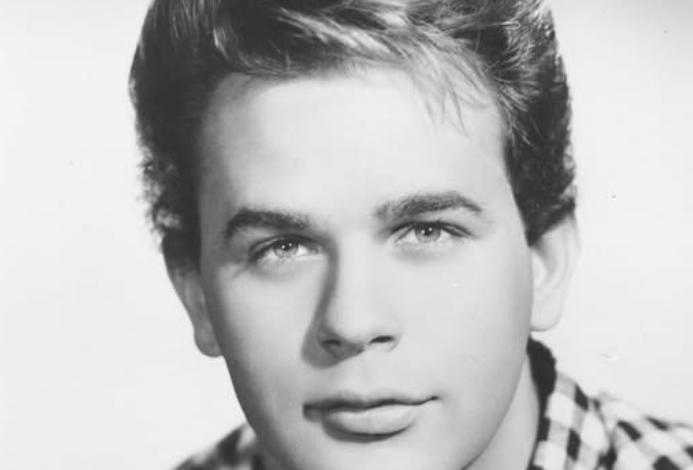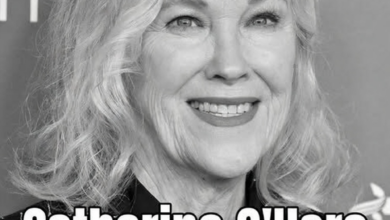
Renowned hitmaker and teen favorite passes at the age of 82!
The world of music said goodbye to another legend this year. Lou Christie, the unforgettable voice behind the 1966 hit “Lightnin’ Strikes,” passed away on June 17 at the age of 82. Known for his soaring falsetto and a string of infectious pop melodies, Christie defined an era of youthful energy and emotional storytelling that left a mark on generations of listeners.
Christie was born Lugee Alfredo Giovanni Sacco in Glenwillard, Pennsylvania — a small town on the banks of the Ohio River, where steel mills and church steeples shaped much of daily life. From the start, his voice was a gift that couldn’t be ignored. He often spoke about discovering his love of singing during a first-grade Christmas pageant. Standing on stage before his classmates, he sang “Away in a Manger” and felt the room erupt in applause. That moment, he later said, “was when I knew. It was like lightning striking — I wanted that feeling forever.”
By his teenage years, Christie was singing in local choirs and small clubs, balancing dreams of music with the reality of a working-class upbringing. His early performances blended doo-wop harmonies, church influences, and a flair for drama that hinted at the showman he would become. Friends remembered him as the kid who was always humming a tune, who’d run home after school to scribble lyrics in a notebook instead of doing homework.
After high school, he started recording demos with friends in a makeshift studio — a small, two-track setup housed in the back of a local music shop. He had no label, no producer, and no money to spare, but he had a voice that could fill a room. One of those early recordings eventually landed in the hands of a regional radio DJ, and soon Lou Christie was a name people were beginning to talk about.
His stage name came almost by accident. Lugee Sacco didn’t sound like the name of a pop star, and a producer suggested something simpler, something that would roll off the tongue. “Lou Christie” was born, and with it, a new identity — half dreamer, half hitmaker.
Christie’s first real break came in 1963 with “The Gypsy Cried,” a haunting, romantic tune that showcased both his falsetto and his knack for storytelling. The song climbed the charts, reaching the Top 30, and introduced listeners to a singer who wasn’t afraid to blur the lines between heartbreak and theater.
He followed that success with “Two Faces Have I,” another hit that captured his signature blend of innocence and intensity. By this time, he had teamed up with Twyla Herbert, a classically trained pianist and composer who would become his lifelong musical partner. Herbert, more than twenty years his senior, understood his voice in a way few others did. Together, they wrote songs that walked the line between pop and opera — lush, emotional, and completely distinct.
But nothing prepared Christie for what came next.
In 1966, he released “Lightnin’ Strikes,” a song that would define his career. It was bold, dramatic, and unapologetically theatrical. With its sweeping strings, pounding rhythm, and that unmistakable falsetto soaring over the chorus, it captured the spirit of the mid-’60s — youthful, defiant, and electric. The song hit No. 1 on the Billboard Hot 100 — on Christie’s 23rd birthday, no less — and instantly cemented his status as one of pop music’s brightest stars.
“Lightnin’ Strikes” wasn’t just a song; it was a phenomenon. Christie’s sound stood apart from the folk-rock and Motown trends of the time. His high-register vocals and emotional delivery made him a favorite among teenage fans, particularly young women who found something both powerful and tender in his voice. His performances were magnetic — full of energy, mischief, and a touch of vulnerability that made audiences feel like he was singing directly to them.
The late 1960s brought both success and turbulence. As musical tastes shifted toward psychedelia and rock, Christie’s style — part romantic crooner, part pop dramatist — struggled to find the same commercial traction. Yet he continued recording, experimenting with new sounds while staying true to his roots. Songs like “Rhapsody in the Rain” and “I’m Gonna Make You Mine” showcased his willingness to evolve.
“Rhapsody in the Rain” was particularly controversial at the time for its romantic imagery, even being banned on some radio stations. But its lush arrangement and cinematic storytelling foreshadowed the kind of bold, personal songwriting that would become common in later decades. Christie didn’t chase trends; he created his own lane, and it kept him relevant far longer than many of his contemporaries.
As the years passed, Christie found new ways to reinvent himself. He became a fixture on the nostalgia circuit, performing alongside other legends from the ’60s like Frankie Valli, Lesley Gore, and The Shirelles. Audiences never stopped wanting to hear “Lightnin’ Strikes,” and Christie never stopped delivering it with the same passion he had in 1966.
Offstage, he remained humble about his fame. He often credited his upbringing and faith for keeping him grounded. “I came from a place where people worked hard,” he once said in an interview. “You didn’t dream of being famous. You just dreamed of doing something you loved — and I got lucky that people loved it too.”
Christie also spent years mentoring young artists, offering advice and encouragement to those trying to find their own voice in an industry that often chews people up. His philosophy was simple: “The voice is an instrument, but the soul is what makes it sing.”
When news of his passing broke, tributes poured in from across the music world. Fellow artists described him as “a true original” and “one of pop’s great dramatists.” Fans shared memories of hearing “Lightnin’ Strikes” for the first time — on transistor radios, at high school dances, or blasting from jukeboxes in corner diners. For many, his songs weren’t just hits; they were soundtracks to moments that defined their youth.
“Lou had this way of making you feel every word,” one fan wrote online. “He could break your heart and make you smile in the same breath.”
Christie’s influence can still be heard in artists who embrace theatrical vocals and emotional storytelling — from Freddie Mercury’s operatic flair to Adam Lambert’s modern falsetto-driven performances. His music bridged eras, proving that passion never goes out of style.
He is survived by his family, close friends, and the countless fans who kept his songs alive for more than six decades.
Lou Christie’s story is one of resilience, artistry, and the power of believing in your own sound — even when it doesn’t fit the mold. From a small-town church choir to the top of the charts, he followed his voice wherever it led him.
And though “Lightnin’ Strikes” may have been his biggest hit, it’s his spirit — bold, brilliant, and unapologetically unique — that continues to resonate.
As one of his lyrics once put it, “When lightning strikes again, love always finds its way.” For those who still hum his songs, that line feels like the perfect farewell to a man who turned every note into a spark.




